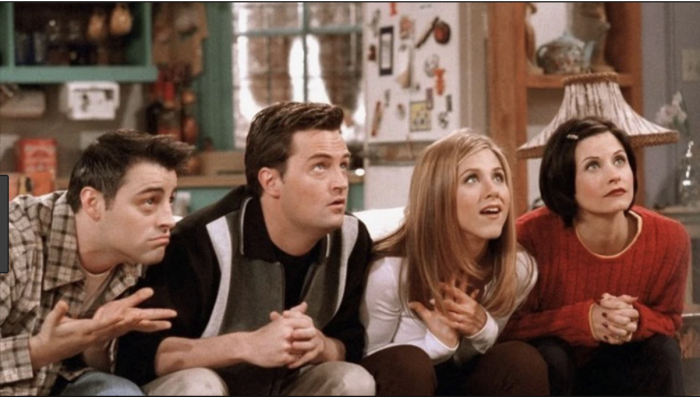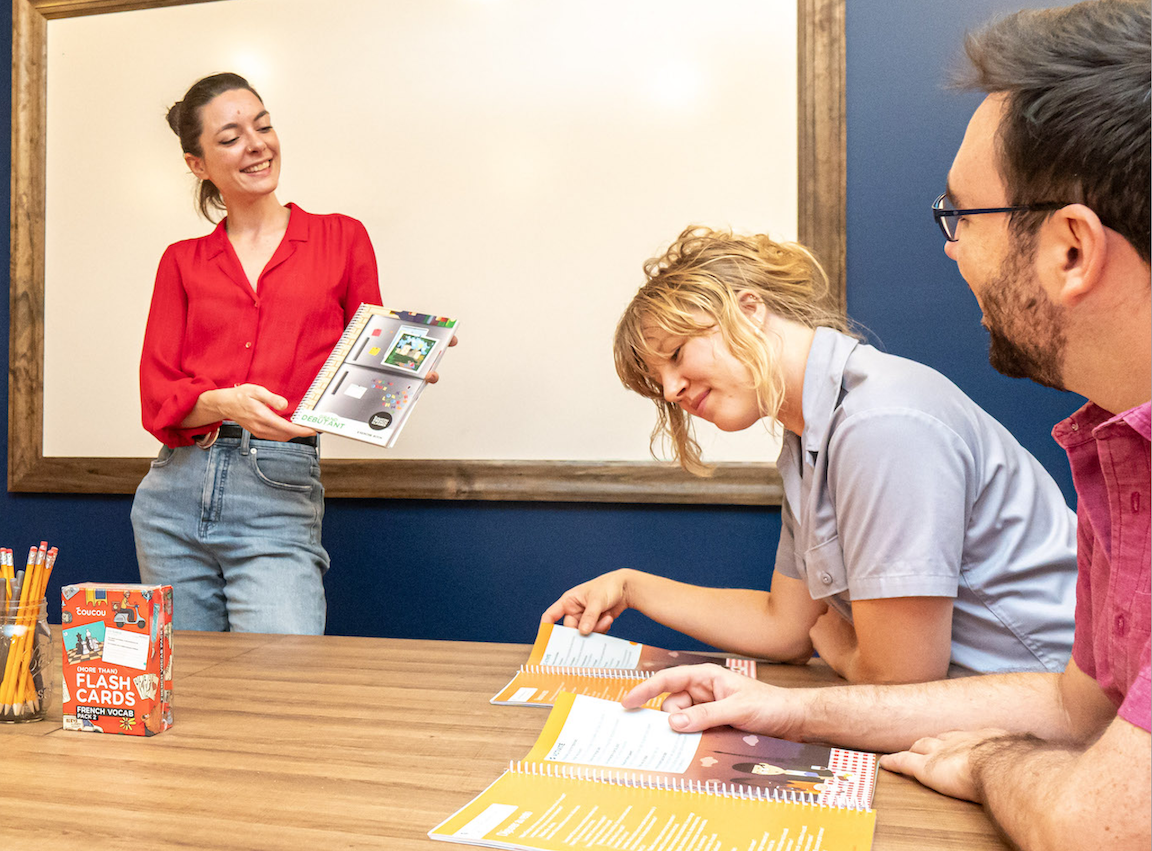Did you know that over 40 percent of English words are directly inherited from French? Check out this interesting article on lexical similarity if you don’t believe us! While it’s often easy to find the perfect equivalent of an English word in French because the languages are quite similar, our American students are sometimes frustrated that some of their favorite words can’t be directly translated into French. This is why we’ve written a guide to translating some of the most common words that stump our students. This week we’re focusing on conveying the nuance of certain English words in French, and we’ll publish a post soon on French people’s favorite words that don’t have equivalents in English. Affaire à suivre…
By Sophia Millman
“Amazing”

Americans tend to describe things very enthusiastically. In English, it’s not strange to say something like this: “The film I saw last night was awesome, my date went amazingly, and I feel incredible!” But if you try to communicate the same idea in French, using the dictionary’s suggestions of “extraordinaire,” “stupéfiant,” and “incroyable,” people will think you’re A: extremely dramatic, B: American or C: crazy.
Here’s how to translate it:
- Impressionnant: if you want to say something was very impressive (for instance a really well-made film) use this adjective. Example: “Ce film était impressionnant de réalisme !” – “The movie was amazingly realistic!”
- Génial or super: These two adjectives work for just about anything and can be used interchangeably. Example: “Cette exposition était vraiment super/géniale !” “This exhibit was really awesome!”
- Top: This is another way to say that something is great, but it’s a little less enthusiastic. You can use it for things, places, and people. Example: “Ce match de quidditch était vraiment top !” – “That quidditch game was really great!”
- Trop bien: This literally means “too good,” but it’s the French way of saying that something was awesome. Example: “J’adore mon boulot, il est vraiment trop bien.” – “I love my job. It’s so awesome.”
- Avoir hâte: This is the best way to say that you’re super excited about something or that you can’t wait for something. (You can also say “je suis impatient(e)” to do something). Example: “J’ai hâte d’être en été” – “I’m so excited for/I can’t wait for summer!”
“Awkward”

This is such a practical word in English because it can be used to refer to a person, a situation, a remark, a gesture… the list goes on. Unfortunately, there’s no word in French that encompasses all of these uses in English, but there are some pretty good approximations.
Here’s how to translate it:
- Mettre quelqu’un dans l’embarras: If you want to say something or someone put you in an awkward situation/position, use this phrase! Example: “Je l’ai invité à un dîner chic et il m’a mis dans l’embarras en arrivant en short et t-shirt.” – “I invited him to a fancy dinner party and he put me in an awkward situation/position when he came wearing shorts and a t-shirt.”
- Gênant: The verb gêner means to make someone uncomfortable. You can say that a situation or person is gênant(e). Example: “Voir mon ex-copine tous les jours au travail est vraiment gênant.” – “Seeing my ex-girlfriend everyday at work is so awkward.”
- Mal à l’aise: If you’re feeling uncomfortable (or ill at ease), try using this expression. Example: “T’es sûr que tu veux danser devant tout le monde ce soir ?” “Non, je me sens mal à l’aise.” – “Are you sure you want to dance in front of everybody tonight?” “No, I feel too awkward.”
“Confusing”

If you look up confusing in the dictionary, you’ll see “confus” suggested, but this word doesn’t have the same connotation as the word in English. The word “confused” is equally difficult to translate. French speakers will rarely say “Je suis confus(e)” or “Je suis dérouté(e).” You’ll usually hear them say “Je suis perplexe” when they’re puzzled by something.
Use:
- Ce n’est pas (très) clair: This is the most common way you’ll hear French people say that something is confusing. Example: “Qu’est ce qui se passe avec les gilets jaunes? Ce n’est pas très clair.” – “What’s happening with the yellow vest movement? It’s so confusing.”
- Je suis perdu(e): Saying “I’m lost” is the best way to indicate that you haven’t understood something complicated. Example: “T’as compris Inception ? Non, j’étais vraiment perdu.” – “Did you understand Inception? No, I was really confused.”
- Prêter à confusion: This is a slightly more formal way to say that something lacks clarity or creates confusion. Example: “L’organisation de votre entreprise prête à confusion.” – “The way your company’s organized is confusing.”
- Déroutant: This word (which more literally translates to “throw someone off the tracks”) mostly applies to situations, but you can use it to describe a person’s personality. Example: “Bernard a une personnalité assez déroutante.” – “Bernard has quite a confusing personality.”
“To Hang Out”

There is no perfect translation for “hanging out” in French. Maybe the French just aren’t as “chill” as Americans. (Though younger French people use “chiller” as a verb now!) In English, we tend to talk about what we do with friends vaguely, whereas in French people will say precisely what they did if they spent time with someone.
Here’s how to translate it:
- Traîner: The closest translation for hanging out with someone is “traîner avec quelqu’un.” Example: “On a trainé au soleil toute la journée.” – “We hung out in the sun all day.”
- Glander: This word is similar to traîner, but it has a pretty negative connotation. It means that you probably should be doing something else, rather than lazing about. Example: “T’as cherché du travail aujourd’hui ?” “Nan, j’ai glandé toute la journée” – “Did you look for a job today ?” “No, I just hung out/around.”
- Se voir: Another way to say that you hung out with someone is to simply say that you saw each other. “Allo André, on se voit ? Ouais, je suis chaud.” – “Hi André, wanna hang out? Yeah, sure.”
“Overwhelmed”

Our students at Coucou always have trouble translating this. Being “overwhelmed” by arriving in a new city or having too much homework is a concept that doesn’t exist in exactly the same form in French.
Our approximations:
- Se sentir dépassé(e): This is the translation we think is closest to “overwhelmed.” Example: “Il y avait trop de monde à ma soirée hier soir, je me suis senti dépassé.” – “There were too many people at my party yesterday evening. I felt overwhelmed.”
- Être submergé: This is how to say you’re overwhelmed by an emotion or by your work. Example: “J’étais submergé de tristesse quand j’ai raté mes examens, mon chat est mort et mon appartement a brûlé dans la même semaine.” – “I was overwhelmed by sadness when I failed my tests, my cat died, and my apartment caught on fire all in the same week.”
- Être surchargé or débordé: When you’re really burdened by work or tasks, use one of these two adjectives. Example: “Je suis surchargé de travail en ce moment.” – “I’m overwhelmed by my work at the moment.”
“Random”

This is one of the hardest words to translate into French because we use it all the time in English for very different situations. We have some translation tips for random, but we’ve got to admit that we’re still stuck on how to translate “rando.” But we’re not the only ones who’ve struggled with the word. Check out these perplexed translators on WordReference if you don’t believe us! In general, when you want to translate the word random, think first of English synonyms that would work instead of the word random, and translate them (arbitrary = arbitraire, bizarre = bizarre…).
Our suggestions:
- Au hasard: This is the most literal French translation of “at random” and “randomly.” Example: “Rien ne se fait au hasard.” – “Nothing is ever random.”
- Par hasard: Don’t be confused by the difference between par and au hasard. Hasard means chance, luck, or coincidence. Par hasard indicates that something happened completely by accident or coincidence. Example: “Tu connaissais ce magasin ?” “Non, je l’ai découvert complètement par hasard !” – “You knew about this store?” “No, I discovered it accidentally/in the most random way!”
- Inattendu: This adjective literally means “unexpected” or “surprising,” and so can apply to random things that happen out of the blue. Example: “Et là, au McDonald’s, elle m’a demandé de l’épouser ! C’était tellement inattendu !” – “And there, at McDonald’s, she asked me to marry her! It was so random!”
Bonus: “What the fuck?!”

This quintessential English expression just doesn’t exist in French. If you want to impress native speakers with a truly French way of sounding pissed off or confused, start saying, “C’est quoi ce bordel ?” Example: “C’est quoi ce bordel avec ces mots impossible à traduire ?!” – “What the fuck’s up with these words that are impossible to translate?!”





